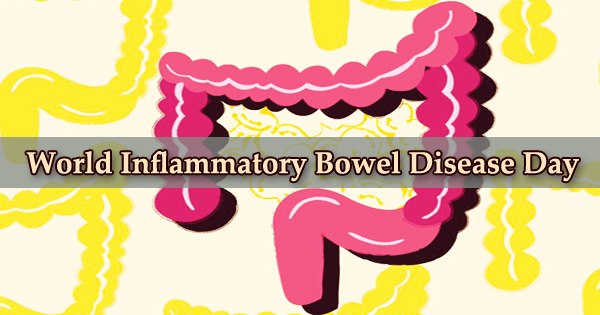Every year on May 19, World Inflammatory Bowel Disease Day, also known as World IBD Day, is observed around the world. Its goal is to increase awareness about Crohn’s disease and ulcerative colitis, both of which are classified as inflammatory bowel disease (IBD). The European Federation of Crohn’s and Ulcerative Colitis Associations (EFCCA) is in charge of organizing the event. The day is organized by EFCCA and led by patient organizations from over 50 countries across five continents. Over the years, many more IBD organizations, activists, and other stakeholders have joined our battle against IBD. Crohn’s disease and ulcerative colitis are two serious, chronic digestive disorders that affect five million people globally. IBD stands for inflammatory bowel disease. Crohn’s disease and ulcerative colitis damage the digestive system directly, causing inflamed intestinal tissue, ulcers, and easy bleeding. The condition has a significant impact on one’s physical and mental health. There is no cure, no recognized cause, and a lack of public comprehension of the pain and chronic suffering that IBD patients bravely endure every day. Medication, surgery, and dietary and lifestyle changes are all options for treatment. Regular exercise and the cessation of bad habits like smoking and drinking are also advised. The following are some of the disease’s most common symptoms:
- Weight loss
- Diarrhoea
- Bowel obstruction
- Bleeding ulcers
- Bloating
- Cramps
- Arthritis
- Genital and rectal fissures
- Stomach ache
- Skin disorders
Crohn’s disease, also known as ulcerative colitis, can strike men and women of any age, though it is most frequent in late adolescence or early adulthood. These conditions may be managed, and people can lead full and productive lives. World IBD Day, which takes place on May 19, was established in 2010 during Digestive Disease Week in the United States. During the global campaign to raise awareness about the daily struggles of living with IBD, famous places across the world will be lit in purple. In our fight against IBD, many countries, municipalities, and individuals from all over the world will join us. Local support events focused on lobbying and/or providing information about IBD will be organized by patient associations and activists in addition to the illuminated landmarks.
Inflammatory Bowel Disease: The Facts
- Inflammatory bowel disease (IBD) includes ulcerative colitis and Crohn’s disease, which are two separate illnesses with overlapping symptoms.
- These are long-term (chronic) illnesses that come and go. They flare up and then become dormant. A flare-up is referred to as a relapse, while a period of inactivity is referred to as a remission.
- Ulcerative colitis is a condition in which the large intestine is inflamed excessively (colon and rectum). Crohn’s disease is a type of inflammatory bowel illness that affects the entire digestive tract, from the mouth to the anus.
- There are no two patients alike. Ulcerative colitis and Crohn’s disease are very different from one patient to the next, and each ailment changes over time within the same patient.
- Patients with IBD now have a much better prognosis thanks to modern medication. These conditions may be managed, and people can lead full and productive lives.
Inflammatory bowel disease diets must be free of foods that can cause flare-ups. The recurrence of IBD symptoms such as cramps, diarrhoea, and bleeding is referred to as an IBD flare trigger. IBD patient organizations and activists from around the world have joined forces to promote awareness of Crohn’s disease and ulcerative colitis, according to the official World IBD Days website.
















